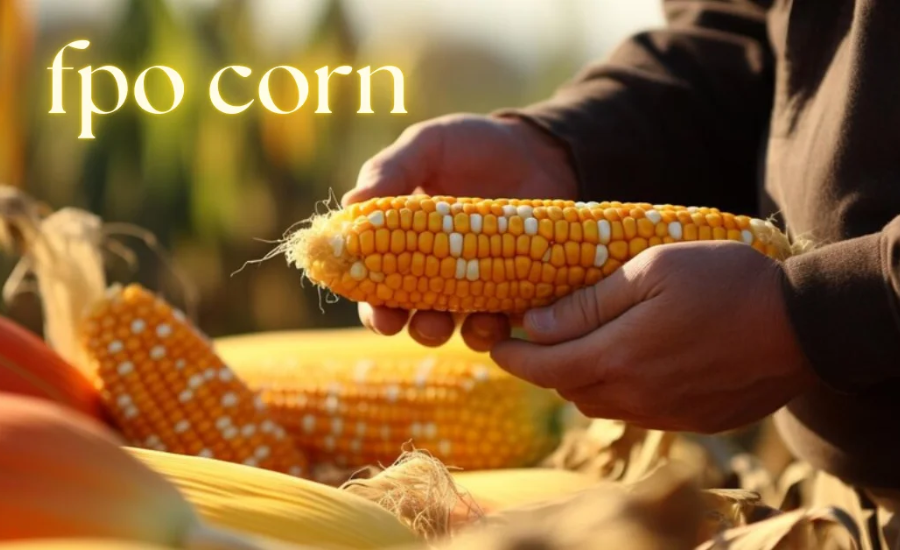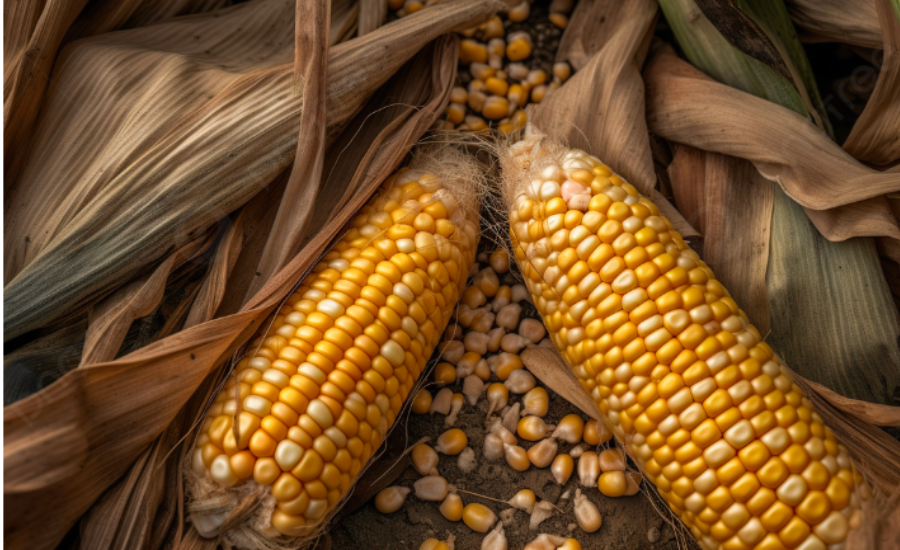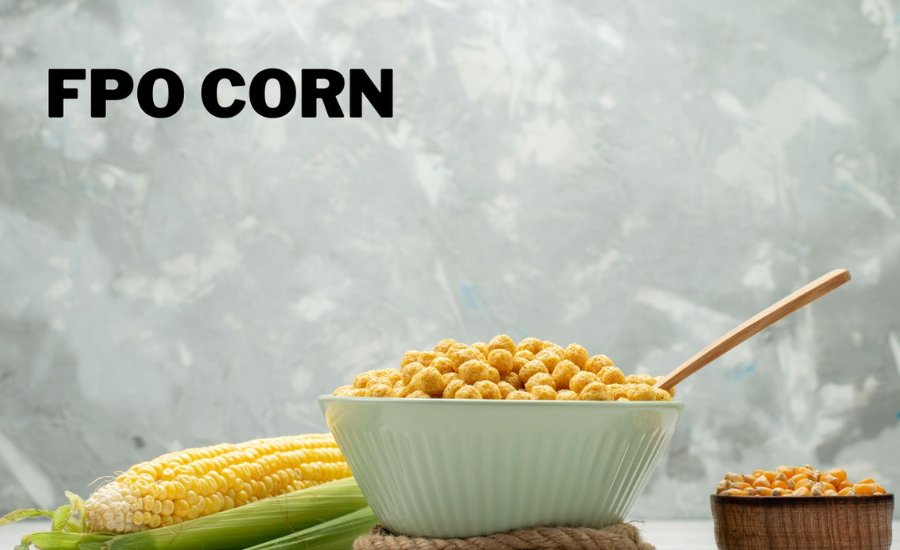Imagine a world where farmers have complete control over their destinies, fundamentally changing the way they trade maize. This is the promise of FPO corn, a movement that goes beyond mere crop cultivation to create opportunities and empower communities. With adequate support and resources, farmers are breaking free from traditional constraints and unlocking new potentials in the maize market.
This innovative approach is reshaping the agricultural landscape, offering solutions to long-standing challenges faced by farmers. The transition to FPO corn represents not just a change in trading practices but a broader evolution aimed at sustainability, profitability, and collective growth.
Are you ready to explore how FPO corn is redefining maize trade? Let’s delve into what makes this movement so impactful for farmers everywhere.
The Current State Of Maize Trade For Farmers

Maize trade has long served as a vital income source for farmers globally. However, many smallholder farmers encounter significant barriers to accessing lucrative markets. Fluctuating prices and limited bargaining power often place them at a disadvantage.
In recent years, global demand for maize has surged, creating opportunities for producers. Unfortunately, these benefits frequently fail to reach those who need them the most. Middlemen often dominate the supply chain, squeezing farmers’ margins and adversely impacting their livelihoods.
Additionally, farmers are wrestling with climate challenges that affect crop yields and quality. This unpredictability complicates trading even further. As they strive to meet evolving market demands, many find themselves ensnared in a cycle of uncertainty.
The current landscape is ripe for change, requiring innovative solutions to empower farmers effectively. By exploring alternatives like FPO corn, we can bridge gaps in this critical sector and enhance economic stability for maize growers worldwide.
How FPO Corn Is Changing The Game
FPO corn is at the forefront of revolutionizing the maize trade landscape for farmers. By organizing producers into Farmer Producer Organizations (FPOs), this initiative encourages collective bargaining power. This shift enables farmers to negotiate better prices, ensuring they receive fair compensation for their hard work.
Moreover, FPO corn enhances access to vital resources, including quality seeds and fertilizers. Farmers can now share knowledge and best practices, fostering a collaborative environment that boosts productivity and sustainability.
Streamlining the supply chain reduces dependence on middlemen, allowing farmers to increase their profit margins. They gain more control over pricing and distribution channels, significantly improving their financial stability.
Additionally, FPOs often offer training programs centered on sustainable farming techniques. This empowers farmers with essential skills that enhance both yield and soil health—crucial factors for long-term success in agriculture.
In this new era of maize trading, collaboration takes center stage, transforming how farmers interact with markets while strengthening community ties across regions.
Benefits Of FPO Corn For Farmers

FPO corn provides numerous advantages for farmers aiming to improve their profitability and sustainability. This model fosters collective strength, enabling farmers to pool resources and share invaluable knowledge.
By forming Farmer Producer Organizations (FPOs), farmers gain enhanced bargaining power in the marketplace. This often translates into higher prices for their maize compared to traditional selling methods.
Access to modern technology is another significant benefit of FPO corn. FPOs typically offer training on best agricultural practices, pest management, and crop rotation techniques, which lead to improved yields.
Furthermore, FPO corn enables streamlined supply chains. Farmers can connect directly with buyers, minimizing reliance on middlemen who typically take a significant share of profits.
With better access to credit facilities through these organizations, many farmers find it easier to invest in high-quality seeds and fertilizers. This financial support propels them toward more sustainable farming practices that protect both their livelihoods and the environment.
Challenges And Solutions In FPO Corn
Despite the benefits, farmers encounter several challenges with FPO corn. The initial setup costs can deter participation, as many small-scale farmers lack the capital to invest in necessary infrastructure.
Accessing markets also presents difficulties. Farmers may struggle to connect with buyers who recognize and appreciate the quality of their produce, often leading to financial losses.
Education and training are crucial for the successful adoption of FPO corn practices. Not all farmers have equal access to information about best practices or the technological advancements that could enhance their productivity.
However, solutions do exist. Governments and NGOs can provide targeted financial assistance tailored for smaller farms. Workshops on modern farming techniques can empower local growers with the skills needed to thrive.
Building cooperative networks allows farmers to share resources and knowledge effectively. By banding together, they can create a stronger market presence, ensuring better prices for their crops.
Advancements in technology also offer tools like mobile applications that connect producers directly with consumers, streamlining sales processes and reducing the interference of middlemen.
Success Stories Of Farmers Using FPO Corn

Farmers across the country are reaping remarkable rewards through FPO corn initiatives. Take Rajesh, for example. By joining a local Farmer Producer Organization (FPO), he transformed his small maize farm into a thriving business. With collective bargaining power, he secured better prices and reduced his input costs significantly.
In another inspiring story, Meera leveraged her FPO’s resources to access advanced farming techniques. This not only boosted her yield but also enhanced the quality of her corn, allowing her to supply to larger markets she couldn’t reach before.
Then there’s Arun, who utilized shared machinery available through his FPO. By reducing expenses related to equipment rental and maintenance, he realized significant savings that he reinvested into enhancing his crop cultivation practices.
These success stories illustrate how FPO corn is empowering farmers like never before, creating opportunities for growth and sustainability in maize trade.
The Future Of Maize Trade With FPO Corn
The future of maize trade shines brightly, particularly with the rise of FPO corn. As farmers increasingly unite to form Farmer Producer Organizations, they gain collective strength and bargaining power that significantly enhances their market position.
This transformation encourages innovation in agricultural practices. With access to shared resources and knowledge, farmers can adopt better farming techniques that improve yield and quality.
Moreover, FPO corn facilitates direct connections between producers and markets, eliminating middlemen and ensuring fairer prices for farmers while providing consumers with fresher produce.
As technology continues to advance, data-driven solutions will further empower these organizations. Farmers will be able to leverage analytics to predict market trends and optimize their production schedules effectively.
Sustainability remains paramount. FPO corn initiatives often prioritize eco-friendly practices that not only enhance productivity but also safeguard vital ecosystems for future generations.
FAQs About FPO Corn And Its Impact On Maize Trade
What is FPO Corn?
FPO corn is maize traded through Farmer Producer Organizations (FPOs), where farmers unite to boost their bargaining power and market presence.
How does FPO Corn help farmers?
It empowers farmers by improving their negotiating strength, minimizing reliance on middlemen, and providing better access to resources and technology.
What challenges do farmers face with FPO Corn?
Farmers may encounter high initial costs, difficulties accessing markets, and a lack of education on modern farming techniques.
How can these challenges be overcome?
Solutions include financial aid from governments and NGOs, training workshops on farming practices, and forming cooperative networks for resource sharing.
Are there success stories of farmers using FPO Corn?
Absolutely! Many farmers have seen improved yields and reduced costs by joining FPOs, demonstrating the power of collective action.
What does the future hold for maize trade with FPO Corn?
The outlook is bright, with FPO corn driving innovation, establishing direct farmer-to-market connections, and promoting sustainable practices for better profitability.
Conclusion
The rise of FPO corn is transforming the maize trade, equipping farmers with the necessary tools and support to regain control over their livelihoods. Through the formation of Farmer Producer Organizations, farmers are not merely cultivating crops; they are also creating valuable opportunities for themselves and their communities.
This movement represents a significant shift towards sustainability, increased profitability, and collective advancement, effectively tackling the long-standing issues that have plagued smallholder farmers. With enhanced bargaining power, improved access to resources, and innovative farming practices, the future of maize trade has never looked more promising.
Looking forward, the inspiring stories of farmers who have embraced FPO corn highlight the remarkable impact of collaboration and community effort. By participating in these collective initiatives, farmers can discover new possibilities, paving the way for a more equitable and sustainable agricultural landscape for everyone.
Get the latest alerts and updates directly: Pudelek!
